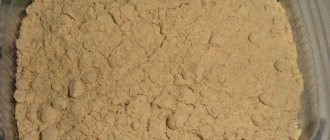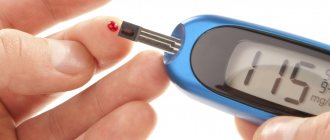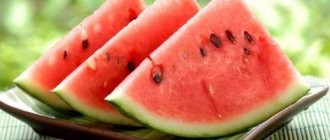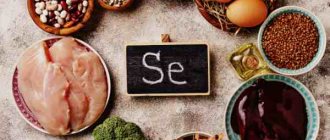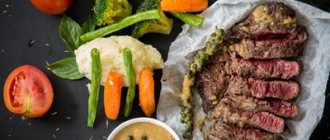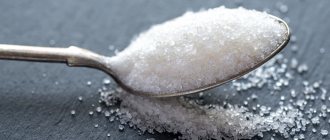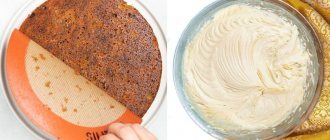Published: 08/16/2017
According to a study conducted by the US Department of Agriculture, the average global population is consuming less sugar than in the previous couple of decades - 94 grams per day or 358 kcal. This is a big number, but you can lower it by incorporating sugar-free diet principles into your diet. Many studies show that eliminating excess glucose not only helps you lose weight, but also reduces the risk of common diseases such as type 2 diabetes, digestive problems, autoimmune diseases and many others.
What foods don't contain sugar but are still filling? Protein - meat, eggs or fish, as well as nuts and other legumes. The time when changing your diet can seem like an ordeal. There may be an increase in appetite and other withdrawal symptoms, but within a few weeks you will see your efforts begin to pay off in spades. High consumption of sucrose causes a mess in the body. Possible hormonal imbalance, lethargy, changeable mood and even insomnia. That's why getting rid of sugar will not only replace empty calories with healthy ones, but will also breathe new strength into you, both moral and physical.
What is a sugar-free diet?
The main principle of this diet is to strictly limit the consumption of products to which sucrose is added both intentionally and in hidden form: lemonades, sweets, sauces. Fruits, sources of natural sugar (fructose), are allowed in moderation. There are many diet options available depending on your preference goals. You can even exclude fruits - this way you will increase the effectiveness of weight loss. An additional advantage is the fact that such a diet does not require calorie counting, since the consumption of semi-finished products is excluded, which is enough to get results.
Let's list the main advantages:
- assistance with weight loss and obesity prevention;
- reducing the risk of developing diabetes;
- a surge of strength;
- mental stabilization;
- reducing the risk of gastrointestinal diseases: irritable bowel syndrome, Crohn's disease, candidiasis and stool disorders;
- stabilization of metabolic processes in the body. Most often it is expressed in its acceleration, which has a positive effect on well-being.
Many people have problems with sucrose addiction. Attempts to eliminate sugar from the diet often end in failure. There are 5 main steps to make this process easier:
- eat more fiber;
- include more protein in your diet;
- eat more healthy fats;
- consume fermented milk products.
- Read food labels at the store carefully, as most people don't realize how much sugar they actually eat and drink.
The glycemic index of foods is an important characteristic of the diet.
The benefits and harms of diet
Avoiding refined sugar in all its forms significantly improves your well-being and prevents the development of many diseases. The main benefits of a sugar-free diet include:
- effective weight loss and prevention of obesity due to the fact that in order to obtain energy in conditions of lack of glucose, the body begins to break down its own fat deposits;
- reducing the risk of developing diabetes mellitus, gastrointestinal diseases (Crohn's disease, irritable bowel syndrome, stool disorders, etc.);
- acceleration of metabolic processes, which has a positive effect on well-being;
- increase in energy (begins after a temporary loss of strength caused by a change in diet) due to the “reprogramming” of metabolism, ensuring the production of double energy under new nutritional conditions;
- getting rid of morning drowsiness, which often affects lovers of sweets;
- increased attention, improved memory, normalization of cognitive functions, activation of mental activity;
- eliminating anxiety, depression, irritability;
- improving skin condition, gaining a healthy, blooming appearance.
Sugar is harmful because it increases weight, destroys teeth, provokes the development of inflammatory processes, which get worse over the years, causing rapid aging, joint destruction, etc.
But the most unpleasant thing is the addiction. Studies on rodents have shown that cravings for sweets are as strong as drug addiction. Moreover, sugar-containing foods act on the brain centers responsible for habits more powerfully than this drug. It stimulates the production of dopamine in the brain, which is responsible for the feeling of pleasure. The brain quickly gets used to its intake and begins to need even more sweets. Refusal leads to a kind of “withdrawal”. Therefore, it is quite difficult to break this dependence, but you only need to endure it for a few days until the brain begins to produce dopamine on its own again. Unfortunately, even these few days do not allow many people to stop consuming foods containing sugar.
Considering the above, there can be no harm from a sugar-free weight loss method. But only on condition that the diet contains the amount of “correct” carbohydrates provided for by the rules of this method. Otherwise, the following consequences are possible:
- the body will begin to experience stress;
- brain cells will be damaged;
- there will be a constant feeling of hunger;
- the risk of developing thrombosis and the appearance of plaques in blood vessels will increase;
- the condition of the liver and spleen will worsen.
If all recommendations are strictly followed, such negative phenomena are simply impossible. The technique is absolutely safe, has no contraindications and, along with weight loss, ensures complete recovery and the prevention of serious systemic diseases.
What is the glycemic index of foods?
Why is high blood sugar bad for you? Sugar can change the intestinal microflora in such a way that intestinal permeability increases, enhancing the absorption of all substances. This promotes overeating and obesity, causing many negative changes in the body. Eating foods with a low glycemic index helps balance blood glucose levels throughout the day, preventing insulin resistance, protecting against fatty liver and heart disease, helping you control your appetite and keep you alert throughout the day. The glycemic index (GI) is “a measure of the effect of food on blood glucose levels after consumption.” The higher the glycemic index, the more rapidly food turns into sugar and vice versa. All carbohydrate foods have a high glycemic index, but this does not mean that, say, bran bread is harmful to health. This is primarily influenced by the degree of processing of the products. So, semi-finished products will be much more harmful than raw products. Also from this point of view, the following are considered harmful:
- potato;
- bread made from premium flour;
- sweetened fermented milk products;
- sweetened drinks: lemonades and juices;
- all types of table sugar, no matter: cane or beet.
Excluding natural sweeteners (honey, syrups, molasses) from your diet should be based on your health. Be careful with dried fruits and starchy vegetables (beets, pumpkin, potatoes).
Research into the effects of dietary sugar on weight loss
So, based on the results of a systematic study and meta-analysis of a large number of large cohort studies (randomized and controlled) - a total of 68 publications - on how sugar in the diet affects changes in body weight in children and adults, we can conclude that in people In those who do not strictly control the food intake (ad libitum diets), the main factor determining weight is the consumption of sugar (both direct and in the form of sugary drinks). An increase in the amount of sugar in the diet causes an increase in body weight, a decrease – a loss of weight. Research results clearly show that the mechanism of the influence of the amount of sugar in the diet on body weight is an imbalance of energy balance (for example, an excess of energy intake over the body's needs), and not the biochemical and physiological characteristics of the metabolism of simple sugars in the body. This conclusion is supported by the results of another 12 studies (with a time frame of 0.5-6 months), which found that replacing simple sugars with other carbohydrates (particularly those with a lower glycemic index) on an isocaloric (same calorie) diet did not led to a change in body weight. (1)
Points of Compliance with Other Low-Carb Diets
- If all sources of sugar are eliminated from your diet, you are already on your way to a low-carb diet, since sweet foods provide the body with large amounts of glucose. In this case, fat becomes the main “fuel” for the body.
- When glucose is removed from the body's energy equation, your carbohydrate intake becomes entirely up to you. Grains, vegetables, legumes and other foods are now the main source of carbohydrates.
- The ketogenic diet, an extreme version of low-carb diets, eliminates the consumption of all types of sugars. The main source of calories are fats: meat, vegetable and butter, and so on.
A sugar-free diet is a typical example of a low-carb diet. The amount of carbohydrates largely depends on the individual nutrition plan, but most often is in the range of 50-130 g per day. Reducing them to about zero values will increase the rate of weight loss, but will negatively affect the functioning of the body.
The influence of fast and slow carbohydrates on lipogenesis
It’s not clear where the information came from that fast carbohydrates turn into fat more than slow ones. The most reliable sources of scientific information are studies, but they do not indicate this.
A special scientific conference was devoted to the topic “Relationship of the glycemic index with lipogenesis in humans,” which did not reveal a significant difference in the extent of fat synthesis from carbohydrates as a result of the consumption of polysaccharides (in particular, starch) and mono- and disaccharides, despite differences in such indicators as levels of insulin and glucose in the blood: “A certain interdependence between the glycemic index of carbohydrates absorbed during nutrition and its ability to activate lipogenesis requires further and more careful study.”(3)
Moreover, the entire carbohydrate-insulin hypothesis of obesity, which endowed carbohydrates in general and sugar in particular with a higher capacity for fat accumulation compared to dietary fats, has not yet been confirmed.
The systematic review and meta-analysis “Obesity Energetics: Body Weight Regulation and the Effects of Diet Composition” provides compelling and comprehensive evidence on the relationship between dietary composition, energy balance, mechanism, and risk of obesity. The review included 32 randomized controlled trials of isocaloric fat-to-fat substitution of dietary carbohydrates at the same protein content.
Only 3 of 32 studies showed improvement in body fat loss in diets low in dietary carbohydrates, while the vast majority showed greater loss of body fat in diets low in fat.
These results were the opposite of those predicted by the carbohydrate-insulin hypothesis and refute any so-called metabolic benefit from replacing carbohydrates with fats. (4)
The importance of natural sugars
During a hypoglycemic diet, the body still requires carbohydrates. One source is foods containing fructose. Healthy carbohydrates support the level of physical activity, the process of repairing damaged tissues, and provide energy to the tissues of the body and brain. The whole difference is that we will consume only the required amount. Here are some of the facts you should consider when shaping your diet:
- Dietary fiber contained in fruits and vegetables is not fully absorbed by the body, so you should not take into account their specific gravity as a carbohydrate component of nutrition. They are useful in themselves, but are not any significant source of energy;
- Fiber is essential for maintaining healthy digestive and cardiovascular function. In addition, it allows you to control the feeling of satiety.
- Dietary fiber and fiber are often found in low-calorie foods that are high in vitamins, minerals and antioxidants. These include: leafy vegetables, berries, apples, beans, seeds, avocados and sweet potatoes. Some of these foods contain fructose, which shouldn't alarm you given the treasure trove of nutrients they contain.
- Don't forget to replenish your micronutrient reserves. Pay attention to potassium, magnesium, antioxidants: carotenoids, beta-carotene, lycopene, vitamins E and C.
Diet without flour and sweets
It was developed by the famous Dr. Peter Gott. A diet without bread and sweets is to minimize the consumption of “empty calories”, thereby benefiting your body. Carbohydrates are found in chocolate, cakes, buns and other unhealthy foods. Carbohydrate-free days are held, during which protein intake rises sharply. You can take a course of appetite suppressants for better effect if you cannot overcome your cravings for sweets.
Diet rules
In addition to excluding all harmful foods, such as baked goods, cake, cookies, a diet without sugar and flour has some of its own rules. They are:
- Instead of sugar, you can use any other sweeteners. For example, natural honey or fresh fruit.
- You should be careful with products that are not sweets: yogurt, ketchup and other sauces. They contain sugar.
- Instead of pasta, you can and should use spaghetti pumpkin or zucchini. Instead of lasagna dough, for example, you can add grated zucchini to the dish.
- If there are contraindications for the use of gluten (allergies), then it is advisable to bake the bread yourself. This can be done using corn, rice or oatmeal.
- It's easy to replace bread and pastries. For example, your favorite pizza can be made with mushroom caps or chicken breast.
- Refined sugar or other types of sugar are prohibited.
Sugar-free drinks
A sugar-free diet eliminates all sugar from the diet, even in sodas. List of TOP 5 allowed drinks:
- cranberry juice;
- sugar-free dried fruit compote;
- chamomile decoction;
- any unsweetened tea;
- freshly squeezed carrot or orange juice.
Fresh juice can be made from fruits and vegetables that you love. You should be careful, foods with a high glycemic index contain a lot of sugar, as a result of which insulin levels in the blood increase. Chamomile decoction can speed up metabolism, stop cravings for sugar-containing foods and improve food absorption (digestion).
Sugar-free products
This product is said to be "white death". However, sugar is sucrose, which is converted in the body into glucose and fructose, and humans need them as sources of energy. If you want to lose weight, then you should eat foods that do not contain fast carbohydrates :
- meat;
- seafood;
- fish;
- all types of cereals
If you feel unwell after reducing your carbohydrate intake, you can eat a little whole grain or rye bread for breakfast or lunch. When you really want something sweet, you can replace sugar with the following products that will delight you with their taste:
- marshmallows;
- oriental sweets;
- black chocolate;
- paste;
- marmalade
Menu
By consuming the set of products listed below, you can lose 2 kg in a week of diet. It is important to eat small portions every 2-3 hours. You need to drink about 1.5-2 liters of water per day. Sample diet menu:
| Breakfast | Sugar-free porridge, low-fat milk, peach |
| Morning snack | Pineapple piece |
| Dinner | Green salad with tuna, tomato, carrot or other vegetables |
| Afternoon snack | Boiled soybeans |
| Dinner | Meatballs in tomato sauce, cornmeal hominy (polenta) |
Diet plan
How to cope with withdrawal symptoms:
- Read ingredient labels carefully so you know exactly what you're consuming. This is especially important when purchasing products containing hidden sugar, such as seasonings, sauces, canned goods, drinks, etc.;
- To keep your appetite in check, aim to consume about 35-40 grams of fiber per day. Fresh vegetables, nuts and seeds will help you;
- Drink enough water to speed up your metabolism and aid digestion. Aim for ~8 glasses per day.
- If you have a sweet tooth, use sweeteners, for example, stevia. You can get it in large hypermarkets. If its taste is not suitable, make do with natural sweeteners - fruit or honey.
- Avoid caffeine and alcohol. Many cocktails contain a huge amount of sucrose and calories, and alcohol provokes a remarkable appetite.
- Try to limit fast food and opt for fresh foods that you prepare yourself.
The diet plan is very simple and unpretentious

